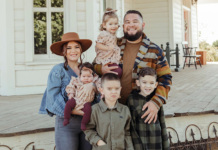
The voters spoke, and the Maricopa Unified School District must go forward after the rejection of another budget override that would have allowed more spending for teachers, lower class size and improve technology.
The proposal failed 58-42 percent, with voters turning down a property increase to fund a 5-percent budget increase for seven years. It was the sixth time voters have turned down overrides in Maricopa, with one failing by only 20 voters in spring 2010.
“I am disappointed; I thought it was a reasonable proposal,” Superintendent Steve Chestnut said. “No one said the package was unreasonable. Voters just did not want to pay the tax.”
Chestnut said there was no backup plan if voters turned down the proposal, which would have generated up to $1.525 million annually for seven years.
Of the $1.525 million, 72 percent would have gone for additional teachers, 20.5 percent for instructional technology and 7.5 for support staff, the Maricopa Education Foundation said.
“We just have to go forward with what we have,” he said, “and compete with the Tempe Union and Kyrene School districts as they bus our students out of Maricopa.”
Arizona allows open enrollment, and other school districts have aggressively pursued students in Maricopa. More than 900 leave every day for Tempe schools, Chestnut said, with 16 buses coming every day to take them for the 45-minute ride to school.
Jeff Kramarczyk, president of the Maricopa Education Foundation, said the override failed because too many voters did not understand the proposition. If supporters attempt to pass another override, he said they need to start campaigning sooner.
“It’s about getting to the parents who have children in the district and getting them to understand the situations in the classroom … and explaining how the override can help,” Kramarczyk said.
Supporters were fighting an invisible opponent, Kramarczyk said. No organizer group or individual led a campaign against it.***ADVERTISEMENT***
“I think it would be healthy if people came out of the woodwork,” he said. “It would be healthy for the community to have the conversation on why people are opposed to it.
“If it’s just about raising taxes, I understand that. But if it’s because they think the administration is too top heavy, and need to cut their own costs, that’s inaccurate. It’s not true. Those are conversations I would love to have in an open setting to educate the community. It’s like we’re facing an unknown enemy.”






![Maricopa sheds tears amid Maui wildfires that killed dozens For Maricopa resident Janelle Gomez, the sorrow mirrors the loss of a family member. [Brian Petersheim]](https://www.inmaricopa.com/wp-content/uploads/2023/08/Gomez-218x150.jpg)
![Embracing Freedom: Celebrating the Fourth of July Councilmember Vincent Manfredi at Great American 4th 2021 [Victor Moreno]](https://www.inmaricopa.com/wp-content/uploads/2023/07/2021-Great-American-4th-e1688414543522-218x150.jpg)



![Maricopa restaurateur makes Food Network connection [Namkeen Dhaba]](https://www.inmaricopa.com/wp-content/uploads/2024/04/439456716_377105198650519_7536248579664805896_n-218x150.jpg)
![Merging lanes incite more 347 anger A merging lane sign sits on the side of State Route 347 northbound lanes during evening traffic on April 30, 2024. [Monica D. Spencer]](https://www.inmaricopa.com/wp-content/uploads/2024/04/spencer-043024-adot-merging-lanes-347-web-218x150.jpg)




